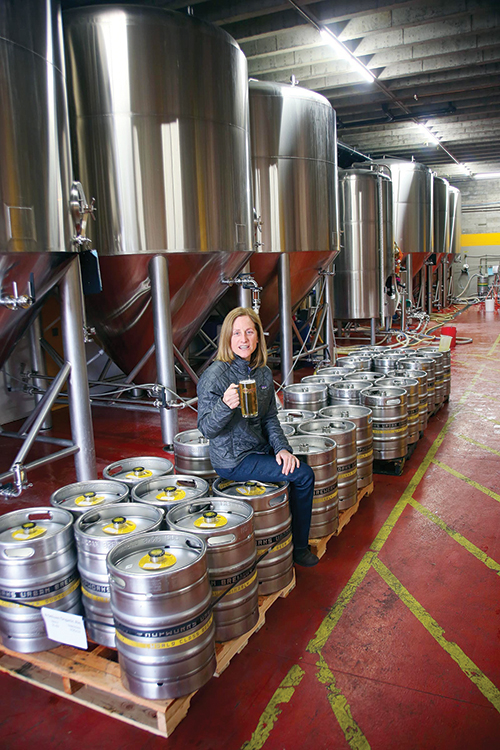Associate professor Mellie Pullman is in the midst of making a change in what she teaches at Portland State. “Beer is replacing food in my life,” Pullman joked. Pullman is the professor of PSU’s new Business of Craft Brewing Online Certificate from the School of Business Administration, and she will teach online courses to students both for credit and not for credit.
Professor profile: Mellie Pullman

Associate professor Mellie Pullman is in the midst of making a change in what she teaches at Portland State.
“Beer is replacing food in my life,” Pullman joked. Pullman is the professor of PSU’s new Business of Craft Brewing Online Certificate from the School of Business Administration, and she will teach online courses to students both for credit and not for credit.
“The first set of the four classes sold out in two weeks. Now I have to do a whole other set of them,” Pullman said. “So what I used to teach is not what I’ll be teaching anymore.”
In the past, Pullman has taught the food supply chain class, a required graduate business course in sustainable supply chains, and something called production planning, which is for people who are going to work at companies like Nike, Adidas or Intel. The class focuses on planning when products have to be made, and people from companies around the community also come to take this course.
“I will still teach that in the future, and I will still teach the MBA course in the future. I’m no longer going to teach food, I’m just going to teach beer,” Pullman said.
Pullman also does a lot of research and little sideline projects dealing with different aspects of sustainable food. She has received two USDA grants recently, both to help study specific supply chains. One looked at organic wheat and tried to improve the supply chain.
“There’s a lot of customer demand, but it’s very hard to have organic wheat in a supply chain that’s dominated by [genetically modified] commodity wheat,” Pullman said. She explained that there are a lot of challenges facing the people who supply the wheat, from the farmer all the way through.
Her other grant focused more on sustainably raised protein groups, and ranching in particular. The grant was awarded to help a ranch family improve their supply chain for grass from feed.
Some sideline projects she’s working on follow along the same lines but differ slightly. “We’re working on a wholesaler farmers market plan,” Pullman explained. “So instead of a consumer farmers market, like we have at PSU, it would be a farmers market where people are providing bigger volumes for restaurants and institutions.”
She’s also interested in trying to reduce waste in food and in other things that go into landfills. She’s working on a textile recycling project that’s a little different from her usual food work, but she says it’s still kind of related.
Pullman has always been involved in sustainability and the issues that go along with it. When she was in school, her undergraduate interest was in alternative energy, and she studied engineering. At the same time she was also working in restaurants and had a brewery. “I had one of the first breweries during the first ‘boom’ of breweries in the ’80s. So when Widmer [Brothers Brewing] started, our brewery started in Utah,” she said.
While working in the industry she decided she needed more business skills, so she got her master’s degree in business administration. During that process, she realized she wanted to be a professor instead of going into business. She taught at the Cornell School of Hotel Administration, doing a lot of work with restaurants and hotels, until PSU had a job opening.
“I really wanted to be in Portland, and I took all my own personal restaurant background and my teaching of restaurant and hotel stuff, and I came here and said, ‘OK, I’m just doing food,’” Pullman said. She took the opportunity to refocus on food sustainability when she started teaching the food class at PSU, and she took all her past experience with work and teaching and brought it to her students.



